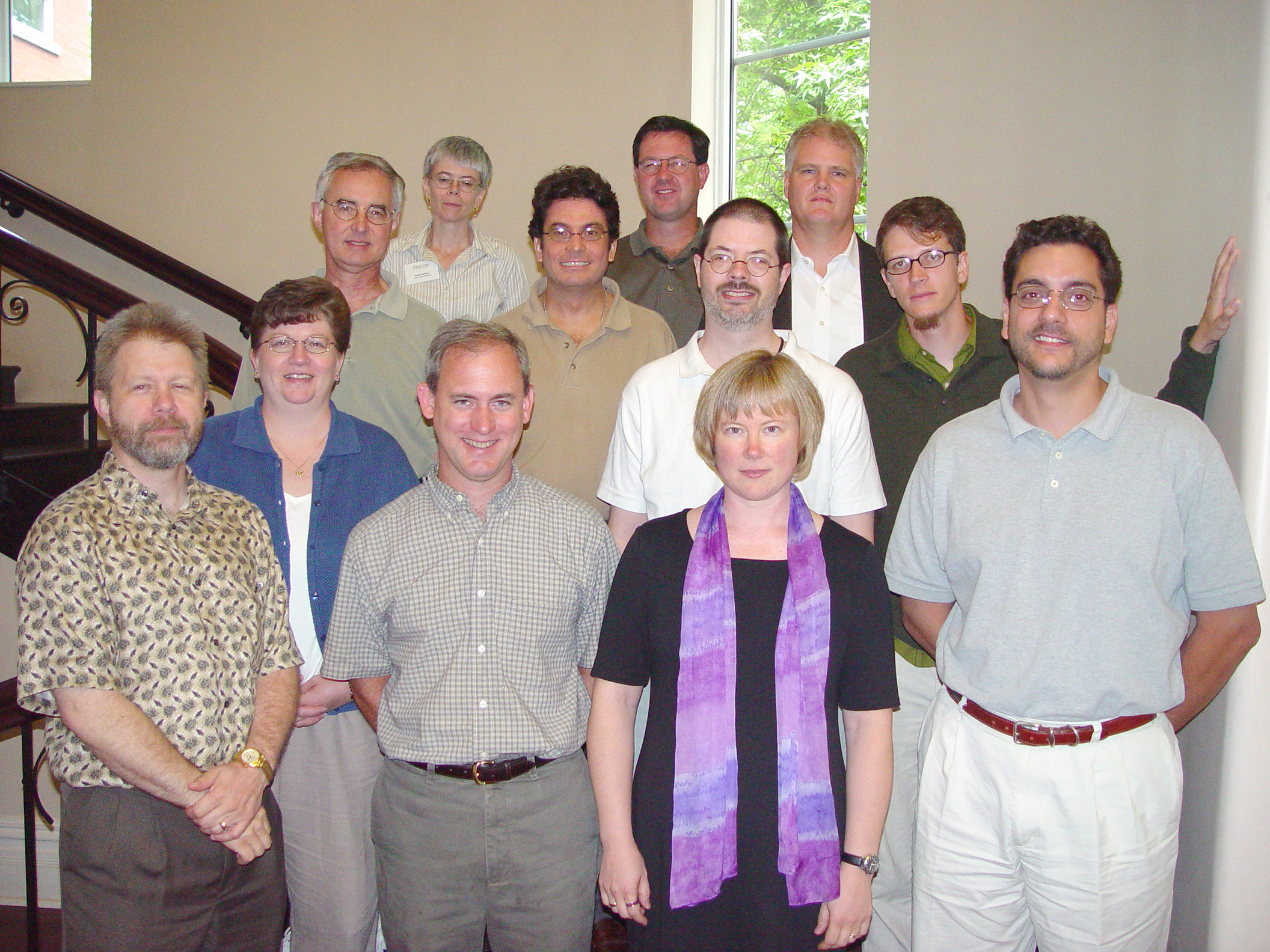2002 Conference on Teaching and Technology
Dates: August 10-13, 2002 at Wabash College, Crawfordsville, Indiana
The Wabash Center convened a conference of scholars to foster a conversation to benefit church and academy. These scholars were theologically, technologically, theoretically, and pedagogically sophisticated about issues pertaining to current concerns regarding information technology and the teaching of theology and religion. It was determined that theological teaching requires reflection different from generalized assumptions about cybermedia, about information design, about communication, and about other dimensions of the use of technology in higher education.
Scope of the task:
Engage in discussion about strategies, dangers, and advantages associated with technology in relation to theological teaching. Begin to map the terrain of the cybermedia landscape as it relates to teaching and learning in theology and religion. Discuss the role of the Wabash Center concerning cybermedia for faculty teaching theology and religion.
Primary goals:
• Identify and discuss fundamental issues concerning the use of information technology in teaching theology and religion
• Identify and discuss implications of using information technology for pedagogical concerns in theology and religion
• Identify and discuss links between philosophical considerations and practice in the use of technology in teaching theology and religion
• Identify steps that the Wabash Center could take concerning the use of cybermedia that would enhance teaching and learning in theology and religion
Secondary goals:
• Share and explore insights of participants that would lead to improved teaching and learning in theology and religious studies through the use of cybermedia
• Facilitate discussion that would focus on the present contours of the digital technology landscape as it relates to teaching and learning in theology and religion
• Develop resources for other teachers and students to extend the conversation about the issues identified
• Identify what the Wabash Center could do to support faculty in making good decisions in teaching with technology
• Discuss how to support faculty in making good decisions regarding online courses and distance education
Questions To Be Addressed:
• What strategies for teaching and learning are most appropriate for utilizing technology in teaching theology and religion?
• What dangers are inherent in the use of digital technology for teaching and learning in theology and religion?
• What are the advantages and disadvantages of cybermedia in relation to teaching theology and religion?
• What are some of the issues raised for teachers of theology and religion by the inclusion of cybermedia in pedagogical design for courses?
• What interventions are needed and would be effective?
• How can the Wabash Center help institutions and faculty members address questions raised by the use of cybermedia in teaching and learning?
Outcomes:
• Determine tangible steps the Wabash Center could make in assisting faculty in making good decisions about teaching with technology
• Generation of ideas that could lead to improved teaching and learning in theology and religion
• Enhanced understanding of the cybermedia landscape as it relates to teaching and learning in theology and religion
• Development of resources, as determined by the group, that will be useful to other teachers and students in expanding the dialogue about the issues identified
Convener:
A. K. M. Adam, Seabury Western Theological Seminary
Wabash Staff :
Paul O. Myhre

Front Row (left to right): *Paul Myhre (Wabash Center), Robert Royalty (Wabash College), Mary Hess (Luther Seminary), George Kalantzis (Garrett-Evangelical Theological Seminary).
Second Row: Dianne Oliver (University of Evansville), *A.K.M. Adam (Seabury-Western Theological Seminary), Trevor Bechtel (Seabury-Western Theological Seminary).
Third Row: Jim Rafferty (Minnesota Consortium of Theological Schools), Wesley Avram (Yale Divinity School), *Thomas Pearson (Wabash Center).
Fourth Row: Sheila McGinn (John Carroll University), Richard Ascough (Queen’s Theological College).
* leadership/staff